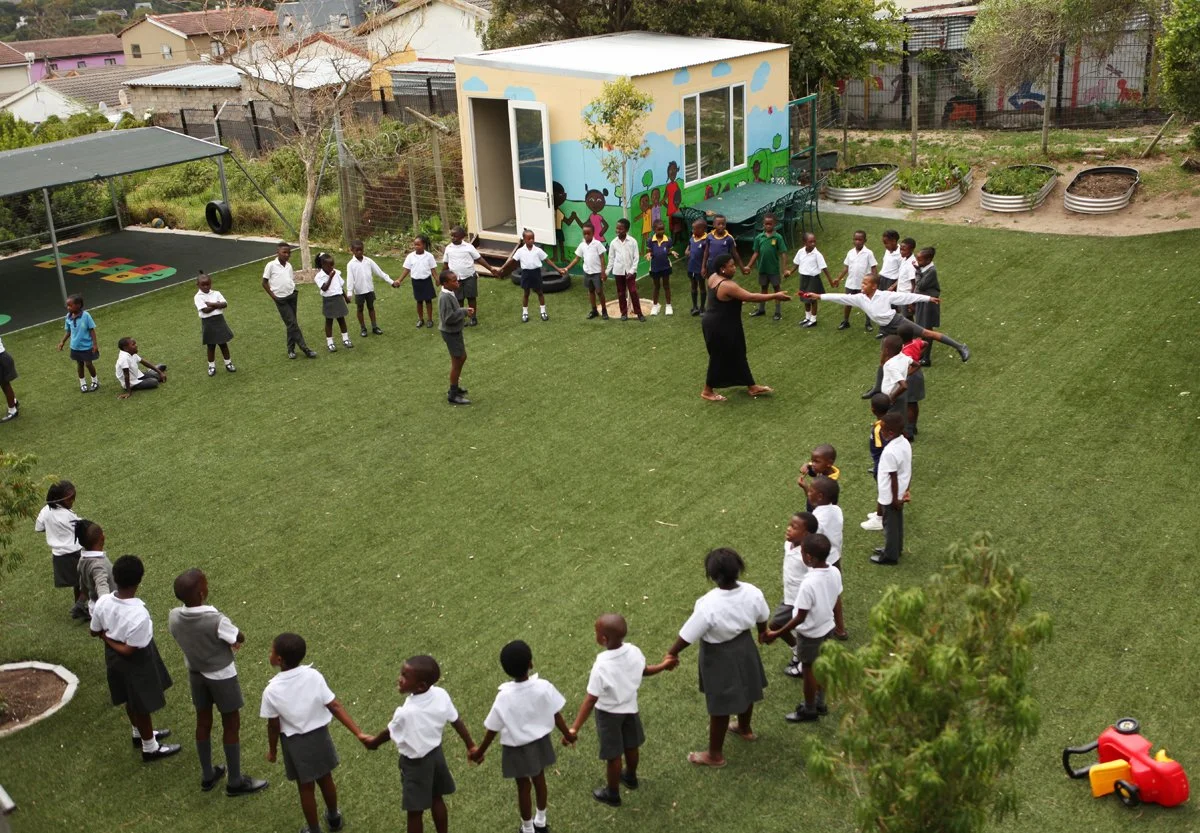A day in the life of Learning Hub child
A Day in the Life of a Learning Hub Child: Why Aftercare Matters
The sun hasn’t yet climbed over the shacks and rooftops of Imizamo Yethu when the day begins. Already the air is alive… neighbours calling to each other, taxis hooting as they snake through narrow streets, dogs barking in the distance.
In one small home, a young girl is already on her feet. She helps her mother get her younger siblings ready—tying shoelaces, smoothing down hair, packing school bags. Her mother is rushing too; she has to be at work early, and she won’t return home until after dark.
At 7:15, her mother gives her a quick hug and leaves. The girl gathers her own books and steps outside with her brothers and sisters. Together they walk through the bustling streets, past corner shops and clusters of children making the same journey to school.
School starts at 8 and ends at 1pm… but 1pm is not the end of her day.
For many children in Cape Town’s informal settlements, the hours between 1pm and 6pm are long, lonely and often unsafe. Parents are still at work, there is no quiet place to study, and the streets are no place for a child to wander alone.
But for this little girl, things are different.
Her mother has signed her up at the IY Learning Hub Aftercare Centre, just a short walk from school. Here, the day continues in a way that feels safe… and full of hope.
When she arrives at the gate, one of the four friendly facilitators greets her by name and smiles as they usher her in. The Hub feels like a home away from home. If her uniform got wet walking in the rain, there’s a place to dry it. There’s a shelf where her bag can rest safely, and comfy chairs where she can curl up with a book while waiting for her friends to arrive.
Once everyone has arrived, the facilitators gather the children into groups and help them tackle their homework. The Hub doesn’t simply do the work for them—children are encouraged to think for themselves, to ask for help only when needed. This is how they learn resilience and grow confidence. The facilitators gently check over their work, pointing out mistakes, helping them understand.
After homework comes lunch—a simple meal eaten together. Then, if the weather allows, it’s time to run outside, stretch legs, laugh, and just be kids.
But the afternoon doesn’t stop there.
The Hub has partnered with organisations like Numbersense and Lalela, bringing in creative and practical ways for children to strengthen the skills they need most—literacy, numeracy, creativity and self-expression. Each child takes their seat again, with new excitement and energy, ready to try learning in a different style.
In South Africa, more than 80% of Grade 4 learners can’t read for meaning. School alone is not enough. Aftercare is where the gap is closed.
As the day winds down, the children enjoy a bit more free time, and then gather one last time for a mindfulness activity—a quiet moment to breathe and reflect before heading home.
When parents arrive at 6pm to collect them, the children leave smiling, their bags packed, their homework done, their bellies full. They head home to help with supper, finish their chores, and finally… sleep.
The Learning Hub isn’t just a place to pass the time. It’s a safe haven. A bridge to a better future. A place where children can learn, grow and thrive—despite the challenges that surround them.
If you’d like to help us keep this vital work going, click here to donate or find out how you can partner with us.
Together, we can make sure every child has a safe place to learn… and a reason to dream.




